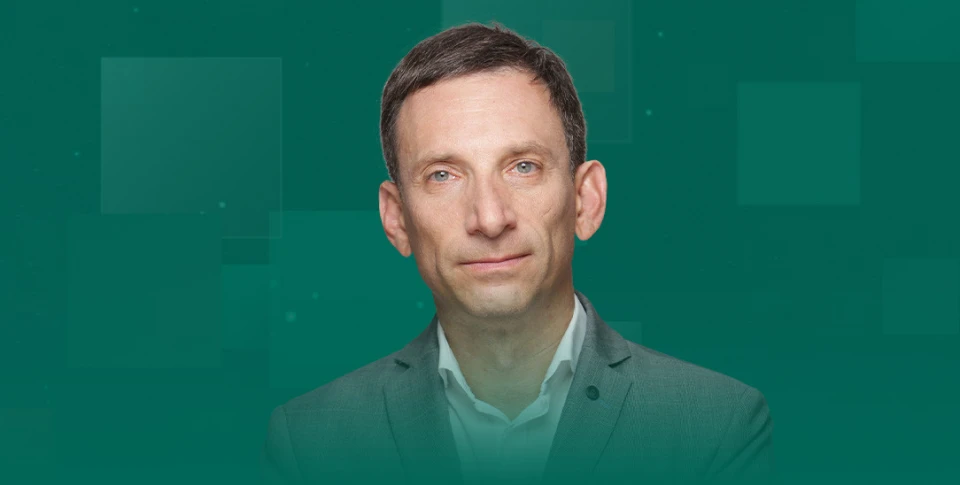
Putin raises stakes, seeking capitulation not only from Ukraine but also from U.S.
It is precisely American capitulation that will quickly transform Russia into a true political hegemony of Europe, forcing many to fear Russia—not necessarily European leaders, but the citizens of European countries
Russian leader Vladimir Putin used the summit of the Collective Security Treaty Organization (CSTO) in Kazakhstan’s capital, Astana, to once again blackmail Ukraine and the world with the Oreshnik missile system. Based on Putin's statements, it can be inferred that the Oreshnik strike on Dnipro did not achieve the propaganda effect the Kremlin had anticipated. Specifically, it failed to compel the West and Ukraine to abandon their use of long-range Western missiles to strike so-called Russian sovereign territory.
Thus, Putin is raising the stakes once more. First, he goes into detail about the technical capabilities of the Oreshnik to his CIS colleagues, even comparing multiple strikes with these missiles to nuclear weapons, albeit without the effect of nuclear fallout. Second, he warns that new targets may be chosen for future Oreshnik strikes, which are already being mass-produced. Among these targets, Putin mentions decision-making centers, effectively blackmailing Ukraine with the potential destruction of its military and political leadership.
By the way, I have previously stated that between November 2024 and January 2025, Moscow may attempt to eliminate Ukrainian President Volodymyr Zelenskyy and other high-ranking Ukrainian officials to demonstrate that the Kremlin does not consider them legitimate leaders of the state it is at war with. While we have yet to see such attempts using Oreshnik or other missiles, such warnings and statements have already been made.
Furthermore, during the CSTO meeting, Putin once again referred to the so-called illegitimacy of the "Kyiv regime," pointing out that elections have not been held in Ukraine. Why might that be? Perhaps because Putin continues waging war against our country, thereby preventing Ukrainian citizens from electing their leadership.
In addition, Putin addressed Ukrainian soldiers, warning them that he does not consider them defenders of their homeland, as they are following orders from usurpers and are therefore complicit in the crimes of what Putin calls the "Kyiv regime."
From the perspective of basic logic, all of this aims to legitimize, at least in the eyes of Russians, the attempts to assassinate not only Volodymyr Zelenskyy but also other high-ranking Ukrainian leaders. I continue to believe that such actions are entirely plausible in the coming weeks.
When Putin speaks about the Oreshnik being capable of penetrating even deeply fortified structures, he is essentially hinting at the Kremlin's potential decision to attack so-called decision-making centers. This speech once again highlights Putin's perspective on the realities of the Russian-Ukrainian war.
It is worth noting that this entire escalation, at least verbal, is happening precisely as the United States prepares for the transfer of power from Joseph Biden to Donald Trump. At the same time, Donald Trump is appointing a new special envoy for potential negotiations to end the Russian-Ukrainian war. There is also speculation globally that Trump may find it easier to negotiate not only with the President of Ukraine, even before such talks begin, but also with the President of Russia.
Putin, however, is clearly demonstrating that he has no real desire for negotiations—none whatsoever, as has always been the case. He intends to continue his approach to the Russian-Ukrainian war purely from a position of strength. In other words, if anyone wishes to negotiate with him, they must take into account his ultimatums. These demands, by the way, were articulated today in the context of Putin’s aggressive speech by Sergey Ryabkov, the Deputy Foreign Minister of Russia.
Ryabkov emphasized that negotiations would only begin once Ukraine withdraws from the territories of Donetsk, Luhansk, Kherson, and Zaporizhzhia, which are currently under the control of legitimate Ukrainian authorities. Additionally, Ukraine must decide on demilitarization—effectively disbanding its Armed Forces—and denazification, a term whose precise meaning remains unclear in the context of Russia’s usage. Furthermore, Ukraine must declare its perpetual neutral and non-nuclear status. Only after these steps are taken can negotiations on a ceasefire commence.
It is crucial to understand that during the time Ukraine would effectively be disarming and capitulating to Russia, Russia would continue firing, killing, and destroying the Ukrainian state. This is the Kremlin's genuine vision of a negotiation process, which it persists in considering a realistic approach to ending the Russian-Ukrainian conflict.
To eliminate any doubts in the West about Putin's inflexibility, he is attempting to escalate his rhetoric about strikes on Ukraine, intensify his level of blackmail, and emphasize that without using actual nuclear weapons, he can deploy weapons that are equivalent to nuclear arms but will not technically be considered nuclear strikes. This is yet another iteration of his familiar threats against Ukraine and the civilized world. Putin hopes this blackmail will compel, if not the current U.S. President Joseph Biden, then his successor Donald Trump, not merely to engage in discussions with him but to agree to capitulation.
It is precisely this capitulation that Putin seeks—not so much from Ukraine as from the United States. Such an American capitulation would quickly transform Russia into a true political hegemony of Europe, instilling fear of Russia—not necessarily among European leaders but among the citizens of European countries. This is the goal Putin is striving toward, using threats of new strikes on Ukrainian soil and further crimes against humanity to blackmail the world.
About the author. Vitaly Portnikov, journalist, winner of the Shevchenko National Prize of Ukraine.
The editors don't always share the opinions expressed by the authors of the blogs.
- News














































